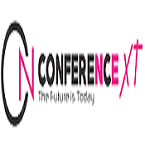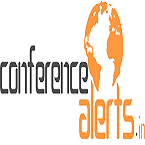Sessions aur Tracks
Session 01: Clinical Psychiatry and Psychiatric Disorders
Clinical psychiatry involves the systematic study, diagnosis, and treatment of mental illnesses. Biological mechanisms play a central role in understanding psychiatric disorders. Mood disorders, including depression and bipolar disorder, are associated with dysregulation of neurotransmitters such as serotonin, dopamine, and norepinephrine. Anxiety disorders involve hyperactivity of the amygdala and alterations in the hypothalamic-pituitary-adrenal axis, which modulate stress responses. Psychotic disorders, including schizophrenia, show structural and functional brain changes, particularly in the prefrontal cortex and hippocampus, and involve dopamine pathway abnormalities. Personality disorders and trauma-related conditions reflect complex interactions between genetics, epigenetic modifications, and early-life environmental exposures. Advances in neuroimaging, genetic testing, and biomarker identification provide tools for precise diagnosis and understanding of disease mechanisms. Pharmacological interventions target these biological pathways, while monitoring neurophysiological and cognitive outcomes guides personalized treatment. Understanding the neurobiological basis of psychiatric conditions enables integration of biological, psychological, and behavioral approaches for effective management.
Session 02: Child, Adolescent, and Geriatric Psychiatry
Mental health across the lifespan is influenced by neurodevelopmental and neurodegenerative processes. In children and adolescents, neurodevelopmental disorders such as autism spectrum conditions and attention deficit hyperactivity disorder are linked to alterations in cortical connectivity, neurotransmitter imbalances, and genetic susceptibility. Early-life stress can modify gene expression through epigenetic mechanisms, affecting vulnerability to psychiatric disorders. Adolescence involves critical brain maturation, particularly in the prefrontal cortex, influencing emotional regulation and risk-taking behavior. In older adults, cognitive decline, dementia, and late-onset mood disorders are associated with neuronal loss, synaptic dysfunction, and vascular pathology. Neuroinflammation, oxidative stress, and amyloid accumulation contribute to neurodegenerative processes. Pharmacological strategies, cognitive interventions, and neuroprotective therapies aim to modulate these biological pathways to maintain cognitive function and emotional stability throughout life.
Session 03: Psychotherapy, Rehabilitation, and Recovery-Oriented Care
Psychotherapeutic interventions influence brain structure and function through neuroplasticity. Cognitive behavioral therapy has been shown to normalize activity in the prefrontal cortex and amygdala, reducing hyperactive fear responses in anxiety and trauma-related disorders. Mindfulness and meditation practices enhance connectivity between the prefrontal cortex and limbic system, improving emotional regulation and stress resilience. Rehabilitation approaches support neurocognitive recovery in patients with chronic psychiatric illnesses or brain injury by promoting synaptic plasticity and adaptive behavioral patterns. Recovery-oriented care emphasizes strengthening functional neural networks and enhancing adaptive coping mechanisms. Biological markers, such as changes in cortisol levels and functional MRI patterns, are increasingly used to evaluate the effectiveness of psychotherapeutic interventions and guide individualized rehabilitation strategies.
Session 04: Addiction Psychiatry and Behavioral Health
Addiction psychiatry studies the neurobiological, genetic, and environmental factors underlying substance use disorders and behavioral addictions. Chronic exposure to substances such as alcohol, opioids, or stimulants induces long-lasting changes in the brain’s reward circuitry, particularly in the mesolimbic dopamine pathway. These changes alter synaptic plasticity, dopamine receptor density, and neurotransmitter signaling, leading to compulsive drug-seeking behavior and impaired inhibitory control. Behavioral addictions, such as gambling or internet addiction, involve similar dysregulation of reward networks and prefrontal cortex function. Genetic predisposition interacts with environmental stressors to influence vulnerability, while epigenetic modifications can reinforce addictive behaviors across time. Pharmacological treatments aim to restore neurotransmitter balance, reduce cravings, and stabilize mood, often targeting dopaminergic, glutamatergic, or GABAergic pathways. Cognitive and behavioral interventions support neuroadaptive changes, strengthen prefrontal inhibitory control, and enhance decision-making. Emerging research focuses on neuromodulation techniques and neuroimaging biomarkers to monitor treatment response and predict relapse risk. Understanding addiction as a brain-based disorder provides a framework for integrating biological, psychological, and behavioral therapies to improve long-term recovery outcomes.
Session 05: Neuropsychiatry, Neuroscience, and Brain Stimulation Therapies
Neuropsychiatry explores the interface between neurology and psychiatry, emphasizing brain function, neural circuitry, and cognitive processes. Disorders such as dementia, traumatic brain injury, epilepsy-related psychiatric conditions, and neurocognitive impairments are linked to structural, biochemical, and electrophysiological brain alterations. Neuroimaging studies reveal abnormalities in cortical thickness, white matter integrity, and connectivity in multiple psychiatric and neurological disorders. Functional MRI and positron emission tomography identify changes in brain activation patterns associated with emotion, cognition, and behavior. Brain stimulation therapies, including electroconvulsive therapy, transcranial magnetic stimulation, and deep brain stimulation, modulate neuronal activity in targeted regions to improve symptoms of treatment-resistant depression, obsessive-compulsive disorder, and other severe conditions. These interventions influence neuroplasticity, synaptic strength, and network connectivity, providing biological evidence for clinical efficacy. Understanding neural mechanisms underlying mental illnesses guides personalized treatment, combining pharmacological, behavioral, and neuromodulation strategies to optimize cognitive, emotional, and functional recovery.
Session 06: Mental Health, Digital Psychiatry, and Public Health
Mental health at the population level is influenced by biological, environmental, and societal factors. Neurobiological research demonstrates that chronic stress, early-life adversity, and social deprivation can alter hypothalamic-pituitary-adrenal axis function, neurotransmitter systems, and brain connectivity, increasing susceptibility to psychiatric disorders. Digital psychiatry and telepsychiatry utilize technology to monitor symptoms, deliver cognitive and behavioral interventions, and track physiological markers such as heart rate variability and sleep patterns, integrating biological data into mental health care. Population-based studies link socioeconomic status, nutrition, inflammation, and exposure to environmental toxins to mental health outcomes, highlighting the importance of prevention and early intervention. Evidence-based public health approaches aim to reduce risk factors, enhance resilience, and implement scalable mental health interventions. Biological research into stress biomarkers, neuroinflammation, and epigenetic modifications informs public health strategies, enabling targeted interventions for high-risk populations and improving overall mental health outcomes at a community and national level.
Session 07: Artificial Intelligence and Telecommunication
Artificial intelligence (AI) and telecommunication technologies are rapidly transforming mental health care by enabling real-time monitoring, remote interventions, and personalized treatment strategies. AI algorithms, including machine learning and natural language processing, can analyze large datasets from electronic health records, neuroimaging, wearable devices, and smartphone-based assessments to detect early signs of psychiatric disorders. For example, patterns in speech, facial expression, typing behavior, and social media activity can serve as behavioral biomarkers for depression, anxiety, and cognitive decline. Neurobiologically, these AI-driven assessments correlate with altered brain activity in regions such as the prefrontal cortex, amygdala, and hippocampus, allowing objective measurement of emotional regulation, stress responses, and cognitive function. Telecommunication technologies, including video conferencing, mobile applications, and remote monitoring platforms, provide access to mental health care in geographically isolated or underserved populations. Through telepsychiatry, clinicians can perform psychiatric evaluations, cognitive assessments, and therapy sessions while integrating physiological data such as heart rate variability, sleep patterns, and electrodermal activity. These physiological markers reflect autonomic nervous system function and hypothalamic-pituitary-adrenal axis activity, providing a biological dimension to digital mental health monitoring.
Session 08: Sleep Disorders and Circadian Rhythm
Sleep disorders are closely linked to mental health conditions such as depression, bipolar disorder, and anxiety. Neurobiologically, sleep regulation involves interactions between the suprachiasmatic nucleus of the hypothalamus, melatonin secretion, and neurotransmitter systems including serotonin, dopamine, and GABA. Circadian rhythm disruptions can alter cortisol and melatonin cycles, affecting emotional regulation, cognitive function, and stress response. Functional MRI studies show altered connectivity in the prefrontal cortex and limbic system in individuals with chronic insomnia or delayed sleep phase disorder. AI-based sleep monitoring using wearable devices allows continuous tracking of sleep patterns, identifying early signs of mood deterioration or relapse in psychiatric disorders. Behavioral interventions such as cognitive behavioral therapy for insomnia, chronotherapy, and light therapy modulate circadian rhythms, restoring neurobiological homeostasis. Pharmacological treatments including melatonin agonists and sedative-hypnotics target neurotransmitter systems to normalize sleep architecture. Integration of digital monitoring and telepsychiatry enables real-time intervention, improving sleep quality and downstream effects on emotional and cognitive health. Sleep optimization also enhances synaptic plasticity, memory consolidation, and stress resilience, providing a neurobiologically informed approach to mental health management.
Session 09: Stress, Trauma, and Post-Traumatic Stress Disorder
Chronic stress and trauma have profound effects on the brain and behavior. Hyperactivation of the amygdala, hippocampal atrophy, and dysregulation of the hypothalamic-pituitary-adrenal axis are hallmark neurobiological features of post-traumatic stress disorder (PTSD). Elevated cortisol levels and inflammatory cytokines contribute to impaired neuroplasticity and cognitive deficits. Early-life stress can trigger epigenetic modifications, altering gene expression related to stress response and emotion regulation. Telecommunication-based therapy, including remote cognitive behavioral therapy and exposure therapy, allows monitoring of physiological markers such as heart rate variability and galvanic skin response, enabling precise interventions. AI models can predict PTSD risk based on trauma exposure, behavioral patterns, and neurobiological markers. Pharmacological interventions, including selective serotonin reuptake inhibitors and adrenergic modulators, aim to normalize neurotransmitter function. Psychotherapeutic approaches focus on restructuring neural circuits involved in fear and emotional processing, enhancing resilience, and reducing symptom severity. Integration of biological, behavioral, and digital approaches improves recovery, prevents relapse, and supports adaptive coping mechanisms in trauma-exposed populations.
Session 10: Neuroinflammation and Psychiatric Disorders
Neuroinflammation plays a central role in the pathophysiology of depression, schizophrenia, bipolar disorder, and cognitive disorders. Activated microglia and elevated pro-inflammatory cytokines such as IL-6, TNF-alpha, and CRP are associated with neuronal damage, synaptic dysfunction, and impaired neurotransmission. Chronic inflammation affects neurogenesis in the hippocampus, contributing to cognitive deficits and mood dysregulation. Neuroimaging techniques, including PET scans, allow visualization of microglial activation and inflammatory burden in the brain. Lifestyle factors such as diet, stress, sleep, and physical activity modulate neuroinflammation, influencing psychiatric outcomes. Pharmacological interventions targeting inflammatory pathways, such as cytokine modulators and omega-3 fatty acids, are under investigation for therapeutic potential. AI-driven predictive models can integrate clinical, genetic, and inflammatory biomarkers to identify individuals at risk for inflammation-related psychiatric disorders. Telecommunication-enabled remote monitoring of physiological and behavioral indicators allows continuous tracking of neuroinflammatory impact, enabling early intervention and personalized treatment strategies. Understanding neuroinflammation provides a biological framework for linking immune dysregulation to psychiatric morbidity and guides development of targeted interventions.
Session 11: Cognitive Disorders and Dementia
Cognitive disorders encompass deficits in memory, attention, executive function, and processing speed, commonly observed in dementia, Alzheimer’s disease, and vascular cognitive impairment. Neurobiologically, these disorders involve synaptic loss, amyloid-beta accumulation, tau protein pathology, neuronal death, and cerebrovascular dysfunction. Functional MRI and PET imaging reveal disrupted connectivity in hippocampal, prefrontal, and parietal regions. Early detection through AI-assisted cognitive assessments, digital biomarkers, and remote telehealth monitoring can track progression and optimize intervention. Pharmacological treatments such as cholinesterase inhibitors and NMDA receptor modulators aim to preserve synaptic function and neurotransmitter balance. Cognitive rehabilitation, lifestyle interventions including exercise and cognitive training, and neuroprotective strategies support neuroplasticity and slow disease progression. Monitoring sleep patterns, cardiovascular health, and inflammation enhances personalized management of cognitive disorders. Integrating neurobiological understanding with digital and behavioral interventions allows precision care for individuals at risk of cognitive decline.
Session 12: Genetic and Epigenetic Mechanisms in Psychiatry
Genetic predisposition and epigenetic modifications significantly influence the onset, severity, and progression of psychiatric disorders. Variations in genes related to neurotransmitter synthesis, receptor function, and synaptic plasticity contribute to mood disorders, schizophrenia, and anxiety disorders. Epigenetic mechanisms, including DNA methylation, histone modification, and non-coding RNA regulation, mediate environmental effects such as stress, trauma, and substance exposure on gene expression. These modifications can alter neural circuitry, neuroplasticity, and stress-response pathways, influencing behavior and cognition. Neuroimaging studies reveal structural and functional brain changes linked to specific genetic variants. AI-based analysis of genomic and multi-omic data enables prediction of disease risk, treatment response, and personalized pharmacotherapy selection. Telemedicine platforms allow remote genetic counseling and monitoring of at-risk populations. Understanding genetic and epigenetic mechanisms provides a biologically informed foundation for precision psychiatry, integrating molecular, neural, and behavioral data for targeted intervention strategies.
Session 13: Addiction and Substance Use Disorders
Addiction involves chronic dysregulation of the mesolimbic dopamine pathway, leading to compulsive reward-seeking behavior and impaired inhibitory control. Substance use, including alcohol, opioids, and stimulants, alters synaptic plasticity, receptor density, and neurotransmitter signaling. Genetic predisposition interacts with environmental factors and epigenetic modifications, affecting vulnerability. Neuroimaging studies reveal prefrontal cortex hypoactivity and heightened striatal responses in addicted individuals. AI algorithms can predict relapse risk by analyzing behavioral patterns, physiological biomarkers, and digital activity. Telecommunication-based interventions, such as mobile apps and teletherapy, facilitate monitoring, counseling, and adherence to treatment. Pharmacological approaches target dopaminergic, glutamatergic, and GABAergic pathways to restore neurochemical balance. Combining biological, behavioral, and digital strategies enables personalized, precise management of addiction and improves long-term recovery outcomes.
Session 14: Anxiety Disorders
Anxiety disorders are associated with hyperactivity in the amygdala, altered prefrontal-limbic connectivity, and dysregulated hypothalamic-pituitary-adrenal axis activity. Neurotransmitter imbalances, including serotonin, norepinephrine, and GABA, contribute to heightened arousal and impaired fear extinction. Chronic anxiety affects cognitive performance, sleep, and autonomic nervous system function. AI-based behavioral monitoring and wearable devices can detect physiological correlates such as heart rate variability and galvanic skin response, facilitating early intervention. Telepsychiatry allows delivery of cognitive behavioral therapy and exposure therapy remotely. Pharmacological treatments including selective serotonin reuptake inhibitors, benzodiazepines, and novel neuromodulators target specific neural pathways. Integrating biological insights, digital monitoring, and therapeutic interventions supports precision care, symptom reduction, and improved functional outcomes.
Session 15: Mood Disorders
Mood disorders, including major depressive disorder and bipolar disorder, involve dysregulation of monoaminergic neurotransmitters (serotonin, dopamine, norepinephrine), altered HPA axis activity, and structural changes in the prefrontal cortex, hippocampus, and amygdala. Neuroinflammation, oxidative stress, and synaptic dysfunction contribute to cognitive and emotional deficits. AI-based predictive models using neuroimaging, genetic, and digital biomarkers enable early detection, treatment selection, and relapse prediction. Telepsychiatry and mobile interventions support mood tracking, adherence monitoring, and therapy delivery. Pharmacological treatments include antidepressants, mood stabilizers, and adjunctive neuromodulators targeting neurotransmitter pathways. Integration of neurobiological, behavioral, and digital strategies facilitates personalized treatment, functional recovery, and relapse prevention.
Session 16: Psychopharmacology
Psychopharmacology examines how drugs alter neurotransmission, neural circuits, and synaptic plasticity to treat psychiatric disorders. Selective serotonin reuptake inhibitors, dopamine antagonists, mood stabilizers, and GABAergic agents target specific pathways involved in mood, cognition, and behavior. Neuroimaging and pharmacogenetic testing guide individualized therapy, predicting response and minimizing side effects. AI can analyze patient data to optimize drug selection, dosing, and adherence. Telecommunication platforms allow remote monitoring of physiological responses, cognitive function, and side effects. Integration of molecular, neural, and behavioral data enhances precision psychiatry, improving efficacy, safety, and patient-centered outcomes.
Session 17: Neurodevelopmental Disorders
Neurodevelopmental disorders, including autism spectrum disorder, attention deficit hyperactivity disorder, and intellectual disability, are associated with altered synaptogenesis, atypical cortical connectivity, and neurotransmitter imbalances. Genetic and epigenetic factors interact with prenatal and early-life environmental exposures to shape neural circuits underlying cognition, emotion, and behavior. Functional and structural neuroimaging reveal differences in prefrontal cortex, basal ganglia, and cerebellar networks. AI-assisted digital assessments track developmental milestones, social interactions, and cognitive performance, enabling early intervention. Behavioral therapies, pharmacological modulation, and neuroplasticity-based rehabilitation promote functional outcomes. Telecommunication-based platforms expand access to therapy, monitoring, and caregiver support, enhancing neurodevelopmental care.
Session 18: Digital Psychiatry and Telepsychiatry
Digital psychiatry integrates AI, telecommunication, and wearable technologies to enhance psychiatric assessment, monitoring, and intervention. Behavioral, physiological, and cognitive data are continuously collected via smartphones, wearable sensors, and telehealth platforms. Machine learning models detect early signs of relapse, monitor treatment adherence, and predict response to interventions. Telepsychiatry enables remote evaluations, therapy, and psychoeducation, increasing access for underserved populations. Neurobiological correlates, including HPA axis activity, heart rate variability, and sleep patterns, are integrated into digital tools, providing objective biomarkers for personalized care. This approach combines technology, biology, and behavioral strategies to optimize mental health outcomes.
Session 19: Brain Stimulation Therapies
Brain stimulation therapies, including electroconvulsive therapy, transcranial magnetic stimulation, and deep brain stimulation, modulate neuronal activity and enhance neuroplasticity in treatment-resistant psychiatric disorders. These interventions target prefrontal, limbic, and subcortical circuits to improve mood, cognition, and executive function. Neuroimaging and electrophysiological monitoring guide stimulation parameters and predict response. AI algorithms analyze patient-specific neural data, optimizing therapy and minimizing adverse effects. Remote monitoring via telecommunication enables ongoing assessment of cognitive, emotional, and physiological responses. Integration of neurobiological, AI, and telehealth strategies allows personalized brain stimulation interventions with enhanced efficacy and functional recovery.
Session 20: Suicide Prevention and Risk Assessment
Suicidal behavior involves dysregulation of serotonin, dopamine, and HPA axis function, along with structural and functional changes in prefrontal cortex, amygdala, and anterior cingulate cortex. Chronic stress, trauma, and psychiatric comorbidities increase risk. AI-based predictive models integrate clinical, behavioral, and physiological data to identify high-risk individuals. Telepsychiatry and digital monitoring allow real-time assessment, crisis intervention, and support delivery. Pharmacological interventions target mood stabilization and anxiety reduction, while psychotherapeutic strategies enhance coping and resilience. Combining biological insights, digital surveillance, and clinical intervention improves early detection and reduces suicide risk.
















